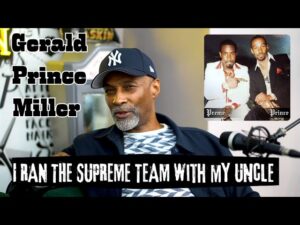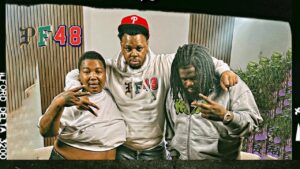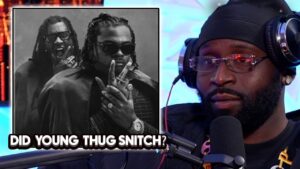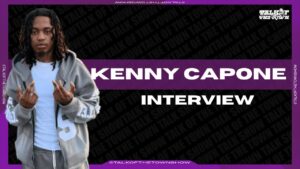In an exclusive two-part interview with Philly First48, Mullaz, the brother of rapper AR-AB and a key member of OBH Records, calls in from federal prison to set the record straight on longstanding rumors while sharing stories of brotherhood, community impact, and his current ventures. Known for their influential presence in Philadelphia’s hip-hop scene, OBH (Original Block Hustlaz) played a pivotal role in shaping local music culture.
“This isn’t just about music—it’s about family, unity, and making opportunities where there weren’t any,” Mullaz explains, emphasizing OBH’s commitment to uplifting Philadelphia’s youth and fostering talent.
Throughout the conversation, Mullaz reflects on the vital roles his brothers AR-AB (Fat Boy) and Lee Moss played in his life, teaching him discipline and the essentials of running a business. Their faith as practicing Muslims helped them navigate difficult times, including personal losses and legal battles.
OBH Records wasn’t just about music—it was a movement. Known for their relentless work ethic, they were dropping multiple videos daily and organizing community events, like peaceful cookouts that drew large crowds and fostered unity. Mullaz proudly recalls how OBH gave platforms to artists who otherwise wouldn’t have had opportunities.
“We didn’t just put on for ourselves—we built something bigger. We helped a lot of people in the industry who are doing well today,” Mullaz notes, hinting at some now-successful names who started with OBH’s backing.
Even from behind bars, Mullaz maintains a business-first approach. He’s currently running a merchandise line promoting a “retired drug dealer” message aimed at inspiring positive change. He’s also involved in arranging deals and endorsements for up-and-coming entrepreneurs, showing that his entrepreneurial spirit hasn’t dimmed.
“Whether it’s Drake with OVO or Jay-Z with Rocawear, they built brands that people believed in. That’s what I’m trying to teach—build something real, and people will support you,” he advises.
Mullaz highlights OBH’s dedication to creating opportunities for young artists and maintaining unity within Philadelphia’s hip-hop scene. He fondly recalls the sense of support they had in their neighborhood and the lack of infighting during their rise.
“It wasn’t just about us—we wanted the whole city to win. That’s why we opened doors for others,” he says.
As the interview wraps up, Mullaz leaves listeners with a message of hope and perseverance. Despite his current circumstances, he remains focused on building a legacy that’s about more than just music—it’s about inspiring the next generation.
“Life’s about making people believe in you. Stay focused, stay grinding, and never stop building your brand,” he concludes.






